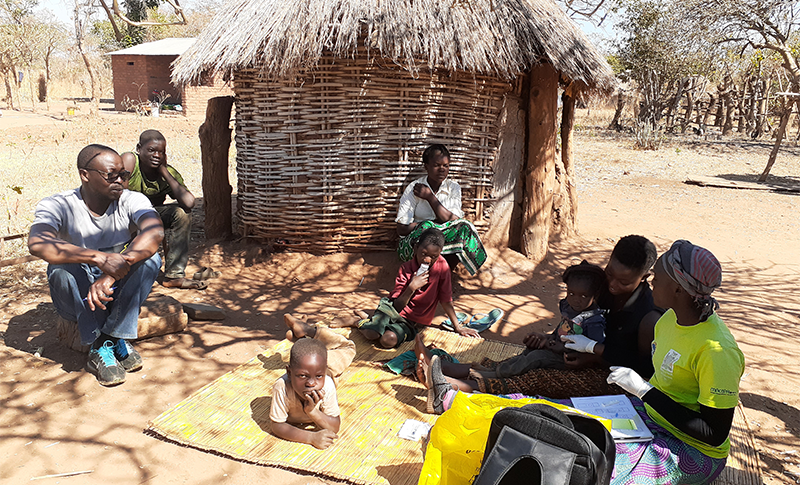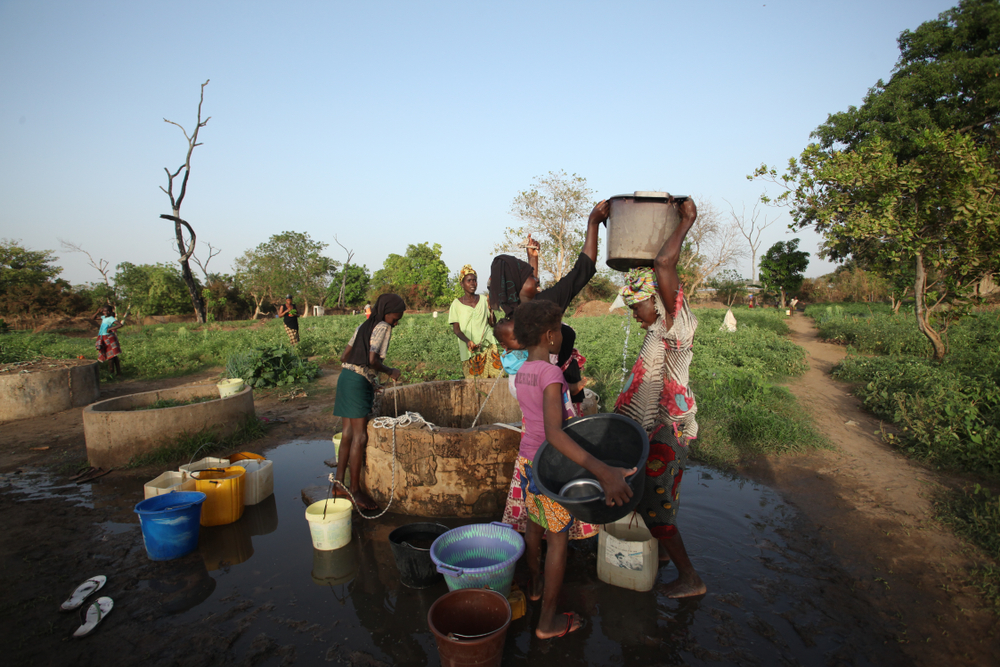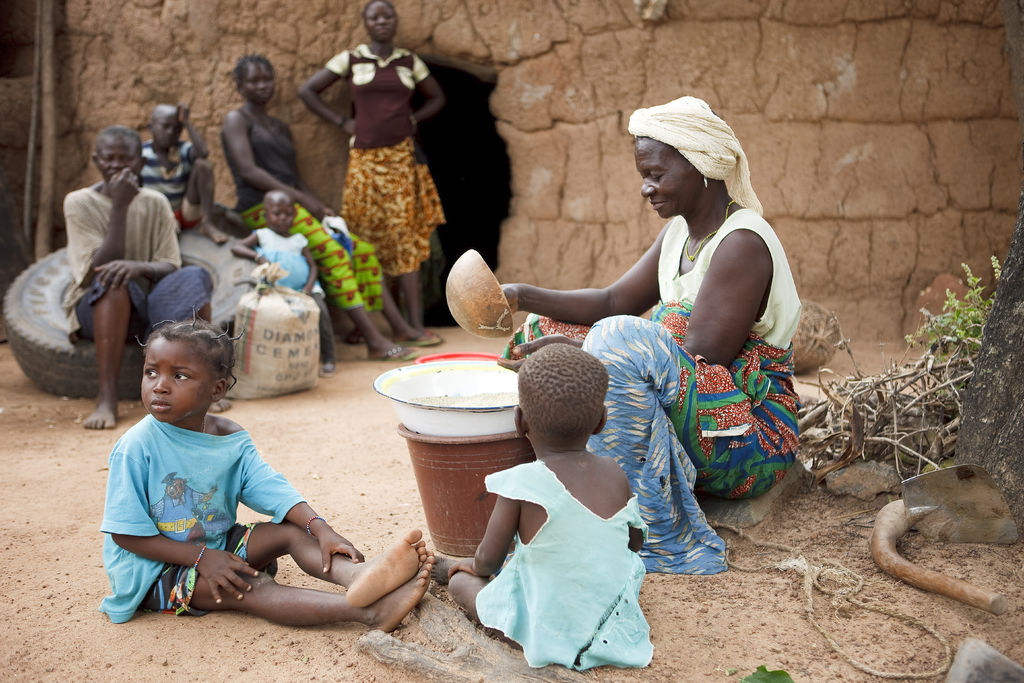Simple insect screens in windows and doors save families in Zambia not only from disease but also from loss of income, shows research by PhD student Brian Chisanga and his colleagues. Dilemma: ‘It does increase inequality, though, because the poorest people’s homes are unsuitable for the measure.’
Development economist Brian Chisanga had to give it some thought when his PhD supervisor Erwin Bulte asked him to get involved in this project. Having focussed mainly on agriculture till then, markets and policy, he wondered whether he should really join entomologists and parasitologists in researching mosquitoes and malaria? Looking back now, he has no regrets. ‘I was the only economist in the group and that was odd at times. But we learned a lot from each other. How entomologists measure mosquito density, for example. And the other researchers’ networks in the healthcare sector came in handy. Conversely, during the baseline survey I remember struggling to explain certain economic concepts, such as ‘willingness to pay’ for mosquito nets through a bidding mechanism. Eventually, everyone understood it and thought it was very interesting.’
Malaria-hotspot
The team randomly selected 800 houses with families in 89 villages in the Zambian malaria hotspot Nyimba. They then installed screens in the windows and doors of half those houses. That cost about 85 dollars, and the question was whether that investment would be cost-effective. Malaria is common in eastern Zambia. Every year, about 40 per cent of adults get malaria and are too sick to work for several days. Children generally get sicker and under-fives often die of the disease.’
Interventions are already under way, but more is needed, Chisanga explains. ‘The government is handing out free bed nets sprayed with insecticide. People also spray the walls with an agent that kills mosquitoes that land on them. That works for a few months, but those substances are bad for the environment and the mosquitoes become resistant to them. Our intervention is environmentally friendly and is intended to complement the other measures.’
Peak during harvest
Most of the inhabitants of Nyimba work in agriculture. Chisanga: ‘The peak of the malaria season falls right in the period when harvesting and weeding must be done. If you can’t work for a few days just then because you are sick or you have to look after a sick child, it costs the family money.’ The researchers estimate that screening windows and doors saves an average of 4.6 days per family when adults cannot work due to malaria. Children benefit less from the measure. ‘In summer, the screens raised the temperature indoors and the children were probably outside more as a result.’
The screens cost an average of 84 dollars per house and generated a 55-dollar increase in household income due to the extra days worked. ‘We assume the screens will last four years, so they are well worth the investment.’ But unfortunately, it is not as simple as that. ‘These people are too poor to make this purchase. All their money goes on food and school fees, and the interest on the loan is too high.’
Free screens?
Informal conversations revealed that people were very pleased with their screens. ‘They were very enthusiastic, and they thought they looked nice too. If we had had enough funds, we would have given them to everyone in the research area after the end of the study.’ But actually, something else needs to happen first, adds Chisanga. ‘Striking as the economic advantages are, we have to realize that screens increase inequality too. You have to start by improving the poorest people’s houses because they are unsuitable for installing mosquito nets. And these are precisely the people who are the most exposed to the harmful effects of malaria.
The economist hopes his research will help keep the debate on eradicating malaria alive and that funds will be raised to implement the plans. ‘I hope this research will provide more than just knowledge. That it also has social impact.’
Solid progress through this kind of research
Development economist Erwin Bulte, Brian Chisanga’s supervisor, does a lot of research into the effectiveness of interventions in developing countries. He looks for example at whether drought insurance for livestock farmers in Kenya helps against local conflicts. In nearly all cases, NGOs, governments or local businesses are involved in the research.
So do the results ever lead to real changes? Bulte: ‘In Sierra Leone, it turned out that forest protection works better if you pay local communities for it. This study led to the whole system of payments being adjusted, and it laid the foundation for a project run by REDD+, a UN programme for combatting climate change.’ He also studied a ‘business and gender training’ offered to women by an NGO in Vietnam. ‘Surprisingly, the training led to an increase in domestic violence because some men felt excluded and thought their wives were becoming too independent. Since then, the organization has invited men to the training too, and involves them in the process.’

 PhD student and development economist Brian Chisanga (left) interviews residents of Nyimba. Text Rianne Lindhout. Photo Personal photo
PhD student and development economist Brian Chisanga (left) interviews residents of Nyimba. Text Rianne Lindhout. Photo Personal photo 

